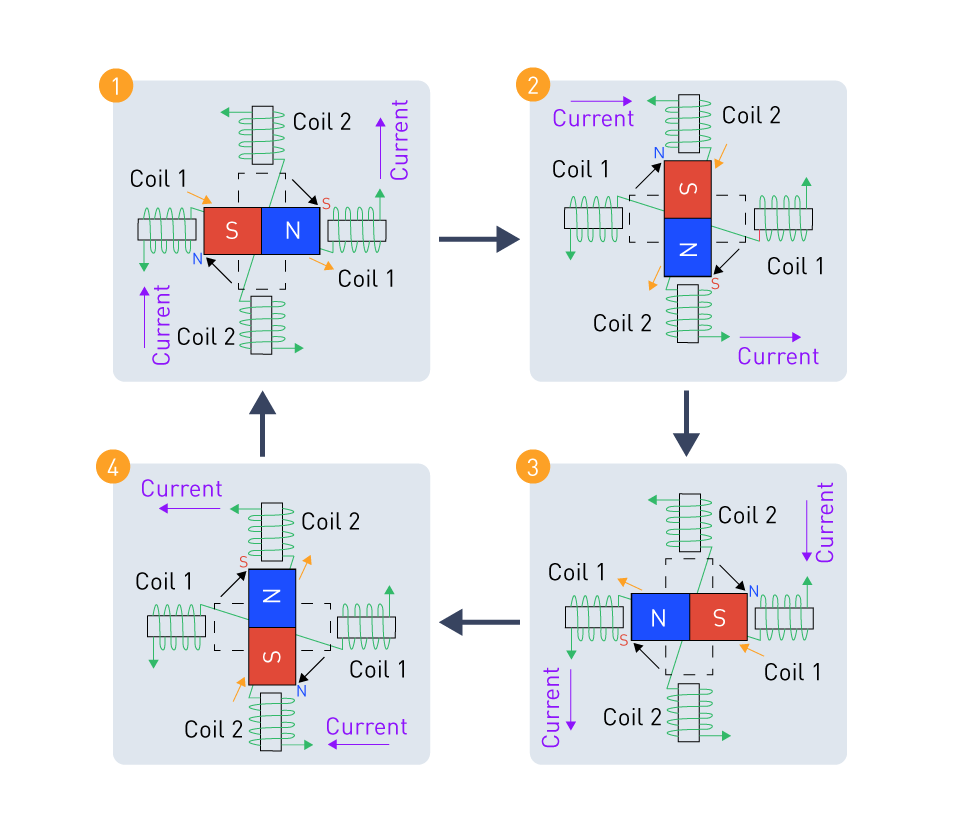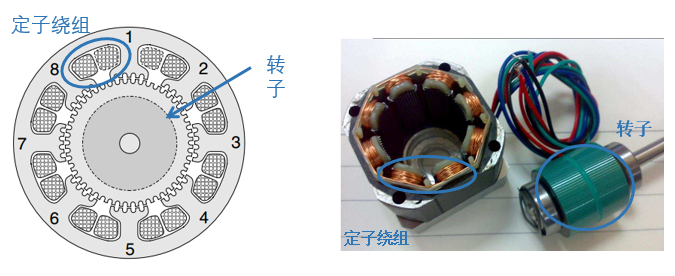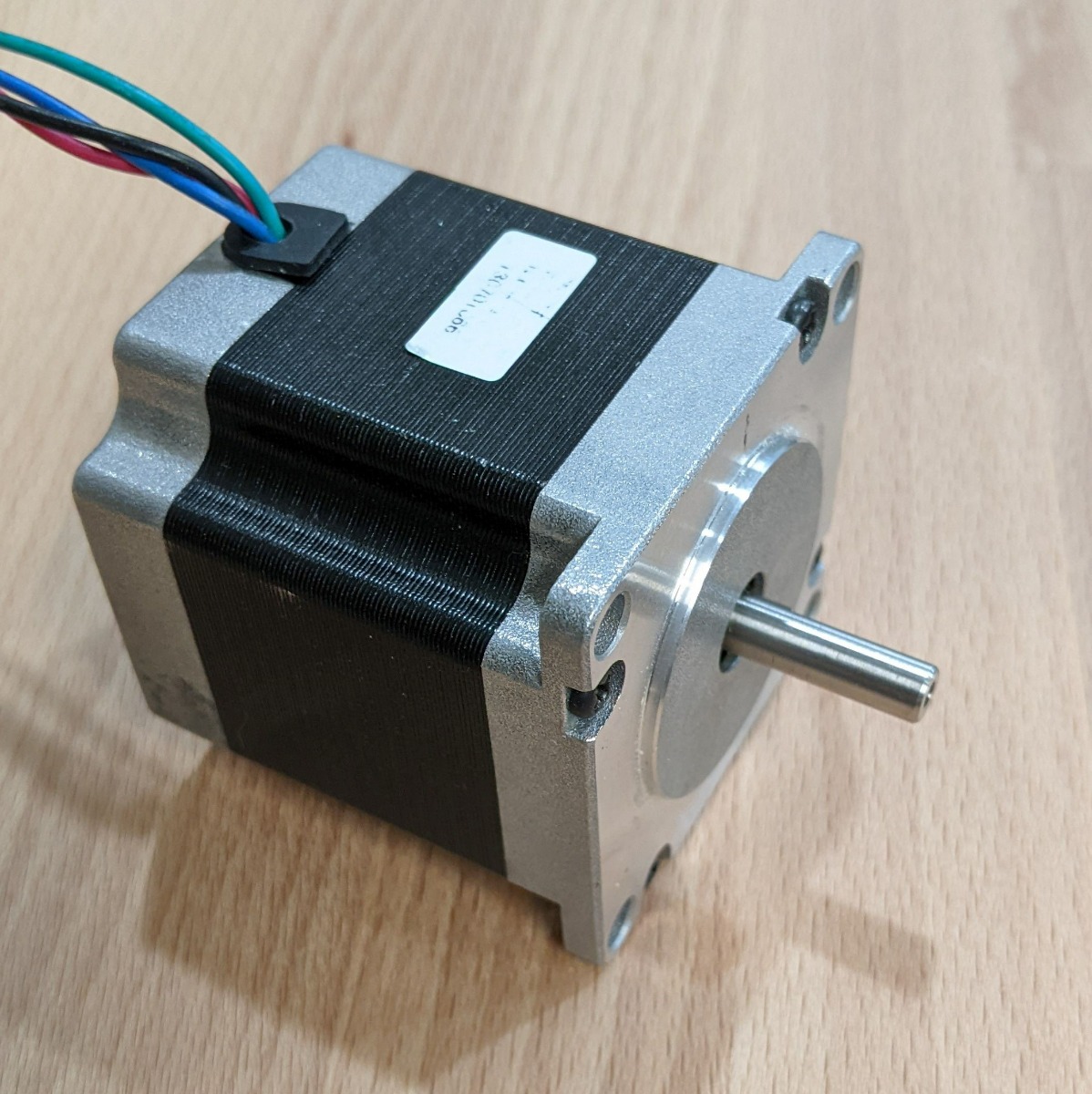Innovations in Stepper Motor Technology
The field of stepper motor technology is undergoing a rapid revolution, which is being pushed by advancements in the fields of materials science, manufacturing techniques, and digital technology. The performance, efficiency, and application breadth of stepper motors are all expected to improve as a result of these improvements, which will further solidify their position as an essential component of the future of precise motion control.
Use of New Materials and Advanced Manufacturing Techniques
Both the torque density and the efficiency of stepper motors are experiencing considerable improvements as a result of the implementation of new materials. These new materials include high-energy rare-earth magnets and sophisticated electrical steels. The use of these materials increases magnetic flux, which in turn enables designs that are more compact, lighter, and economical with energy. In addition, developments in manufacturing processes, such as additive manufacturing (also known as 3D printing), are making it possible to produce complicated motor designs that were previously unreachable. This is resulting in a reduction in waste and the possibility of a reduction in manufacturing costs. In addition, these processes make it possible to rapidly prototype motors and customize them to specifically match the requirements of a certain application.
Use of AI and ML for Predictive Maintenance
The maintenance of stepper motor systems is undergoing a revolution as a result of the use of artificial intelligence (AI) and machine learning (ML). AI algorithms are able to anticipate faults before they occur by evaluating data from sensors that are either embedded in or attached to the motors. This allows maintenance to be scheduled in advance, thereby avoiding downtime. The capacity to perform predictive maintenance is especially useful in the fields of industrial automation and robotics, where unscheduled downtime can result in significant financial losses. Additionally, constant monitoring of motor performance can provide insights into enhancing operational efficiency and extending the lifespan of the motor. This is because the motor is being monitored continuously.
Advanced Control Systems
Increasing the precision and responsiveness of stepper motors is being accomplished by the incorporation of modern control systems, such as fast-decay, which make use of complex algorithms and real-time data processing. Techniques such as adaptive control and microstepping are undergoing further development, which is enabling smoother operation, less resonance, and more precision. The integration of these control systems directly into the driver electronics of the motor is becoming increasingly common. This simplifies the architecture of the system and makes it possible to develop solutions that are both more compact and integrated.
Emerging Trends and Technological Advancements
It is anticipated that new developments in technology, such as the Internet of Things (IoT) and Industry 4.0, will have a substantial impact on the evolution of stepper motor technology. Connectivity and intelligent features will become the norm, making it possible for stepper motors to be more readily incorporated into networked systems and handled remotely. Additionally, developments in power electronics and energy storage may result in power management tactics for stepper motor-driven systems that are more effective and adaptable, which would further increase their application in portable and distant devices.
Prospects and Applications
The ever-evolving environment of stepper motor technology, which is being driven by ongoing research and innovation is expanding the possibilities for its application across a variety of different industries. The role that these motors play in driving precision motion control solutions is growing into new and undiscovered territory as they develop in terms of their versatility, efficiency, and integration with advanced digital technology.
Potential New Uses and the Evolving Role of Stepper Motors in Various Industries
Healthcare and Biomedical Devices: In the field of healthcare and biomedical devices, stepper motors are becoming increasingly necessary due to their precision and dependability. This is especially true for the field of biomedical devices and laboratory equipment. Stepper motors are able to provide the exact control that is necessary for a variety of medical applications, including automated surgical tools, drug administration systems, and diagnostic devices. In order to further assist the trend toward portable and wearable medical devices, the development of stepper motors that are both tiny and low-power has been made possible. This has improved the possibilities of patient care and monitoring.
Consumer Electronics and Personal Devices: The incorporation of stepper motors into a wider variety of products is being driven by the desire for motors that are quiet, efficient, and compact in the consumer electronics industry. Personal devices are also being influenced by this demand. Stepper motors are enabling new functions and increasing user experiences on a wide range of products, including camera stabilization systems, smart home devices, and personal robotics. Their precise control and silent operation are also contributing to these improvements.
Automotive and Aerospace: Stepper motors are an essential component of the precision control systems that are used in the aerospace and automotive industries. The automotive industry, which includes electric and driverless vehicles, is dependent on these systems. There are a variety of applications, including climate control systems, advanced driver assistance systems (ADAS), and in-vehicle information and entertainment (IVI). The dependability and precision of stepper motors are of the utmost importance in the aerospace industry, particularly for applications like satellite communication, positioning systems, and robotic systems that are utilized in space exploration.
Renewable Energy Systems: In the context of renewable energy systems, stepper motors are discovering new uses in solar trackers and wind turbines as the focus of the world changes toward renewable energy. In order to maximize the amount of energy that is captured by these systems, accurate positioning is required, and stepper motors provide the necessary control to change the panels and blades in accordance with the circumstances of the environment.
Smart Manufacturing and Robotics: Industry 4.0 and the rise of smart manufacturing are revolutionizing the industrial landscape, and stepper motors are at the forefront of this change. Robotics is also enhancing the manufacturing process. Because they provide the precision, speed, and flexibility that are necessary for modern manufacturing processes, they play a crucial role in robots, automated assembly lines, and CNC machinery. Integration with Internet of Things technologies and algorithms for predictive maintenance further improves the level of efficiency and dependability that they exhibit in production contexts.









直接登录
创建新帐号